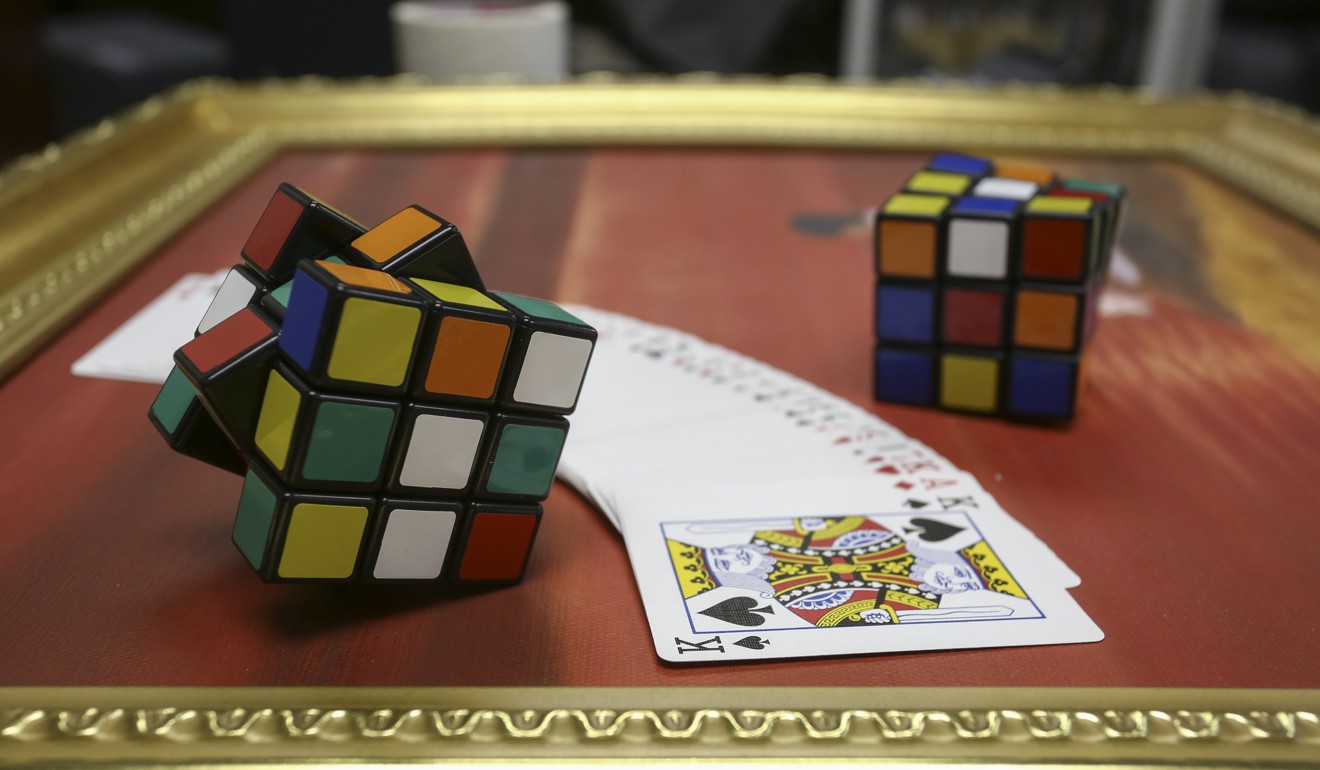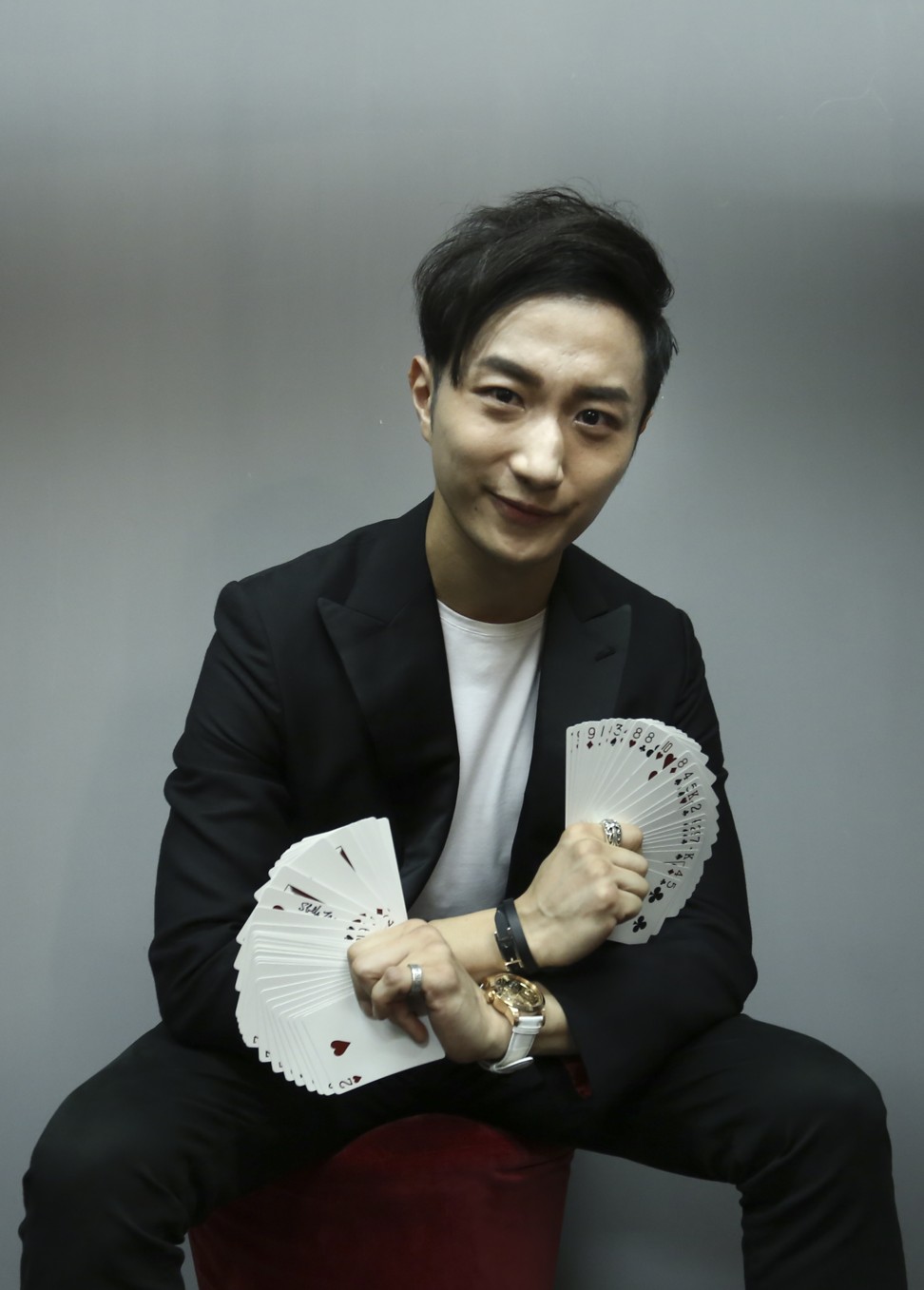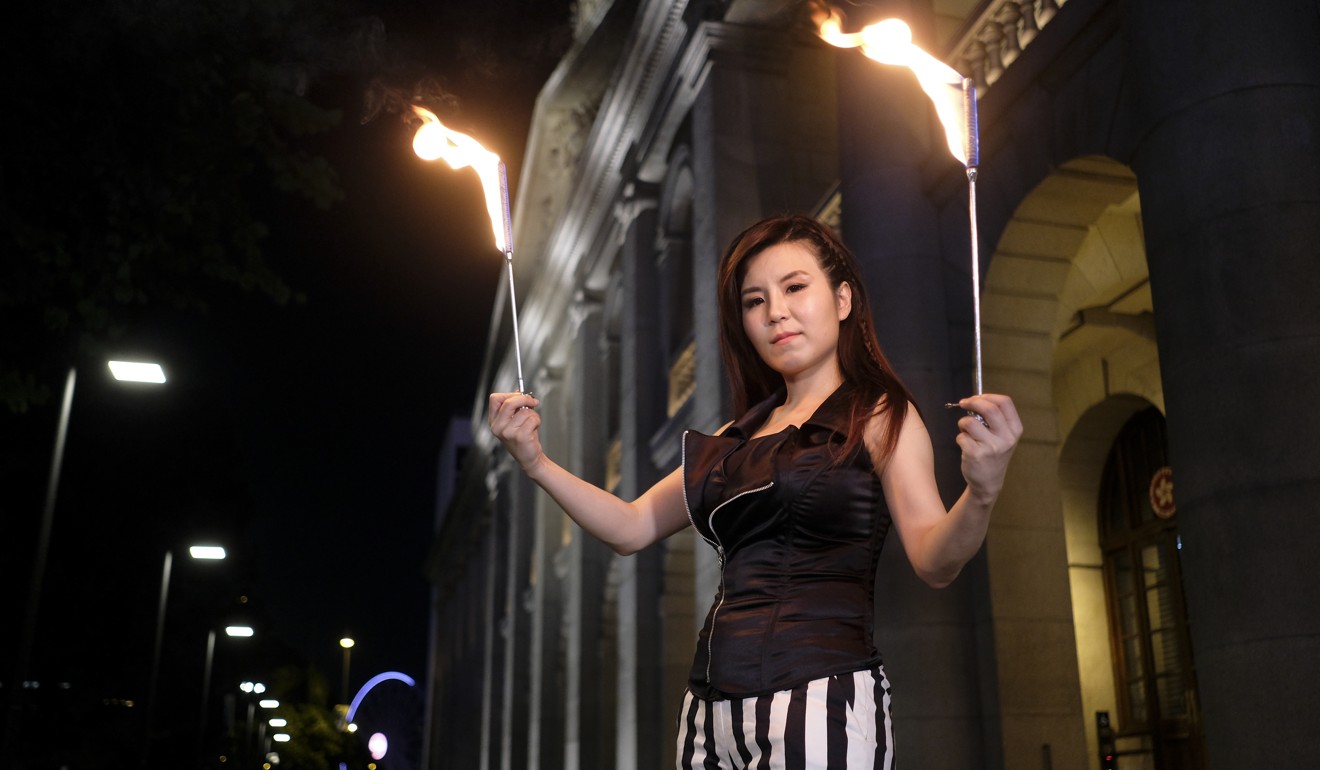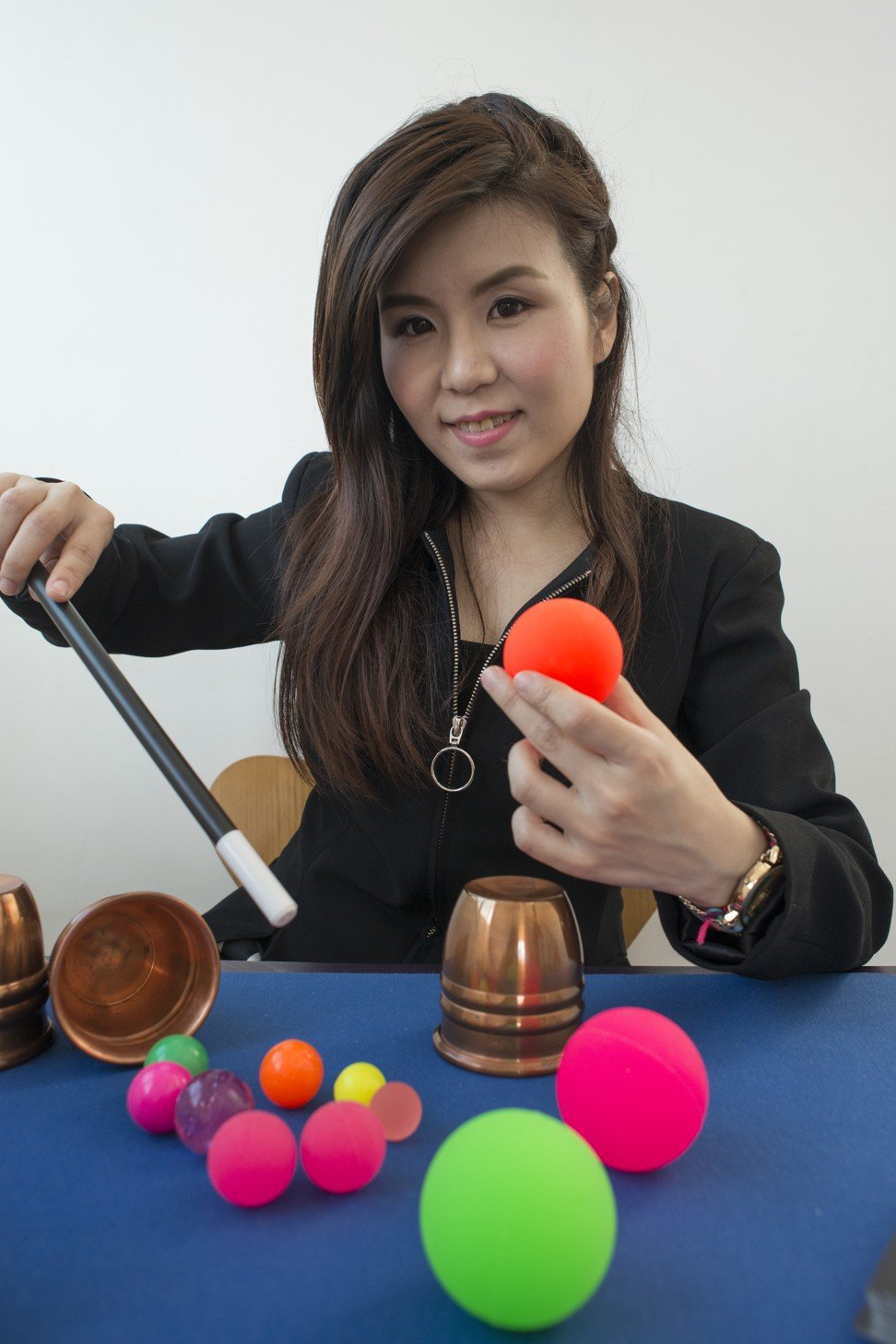
For Hong Kong’s magicians, the trick to being taken seriously is skill and charisma
Being a magician is as much a passion as a profession, and most illusionists struggle to gain credibility in a world obsessed with celebrity
Becoming a superstar illusionist like American David Copperfield does not just happen by magic – years of practice, a flair for showmanship and self-promotion are essential. Oh, and charisma helps.
Skills and presentation are everything for a budding magician, especially in Hong Kong, where, some say, the profession is not taken seriously.
In the West, audiences appreciate and value magic performances as a cultural art form, says local magician Henry Harrius, 27. In Hong Kong though it is commonly brushed aside as “cheap entertainment”, he says.
The government did not help the profession’s reputation when it broadcast a public service announcement in the past year that, Harrius says, demonised magicians. The commercial, which appeared on local television, featured a magician wearing a black and red cloak, and an evil grin. It was made as a warning for Hongkongers to be vigilant for potential fraudsters.
The award-winning magician has been professional for only about four years, although he’s been spellbound by magic since primary school when he used to watch Copperfield’s television shows. The first Harry Potter book had just been published at the time, helping to further bewitch him.
“I used to be a very quiet and boring child who wouldn’t talk or smile,” Harrius says. “Magic changed me forever by teaching me to be confident, sociable and communicative. So magic has become an inseparable part of my life. It’s in my bones.”

Harrius is best known for his tricks with Rubik’s cubes, including Rubik’s Nightmare, which won him an FISM World Championship of Magic award. For this trick, a volunteer in the audience is asked to muddle a cube, then Harrius quickly reproduces the same pattern on another cube.
Watch carefully! This magician’s tricks are winning over Hong Kong’s elderly and improving cognition
Harrius mostly performs for companies at annual dinners in luxury hotels, product launches and private parties. His audiences are often wealthy but he performs for all types of audiences and during busy periods, such as festivals, can be working every night of the week.
To be taken seriously as a magician in Hong Kong, Harrius says it is important to develop your own style, and not just be good at copying others. “If you observe more, and open yourself to knowledge, your horizon will be broadened and your magic will become more creative,” he says.

Harrius says budding magicians should ignore the Hong Kong priority of putting money first and focus on enjoying the work if they want to make a career of it.
Award-winning magician John Fung Mang-sing, who has been professional for a decade, was hooked at the age of 10 when his mother took him to a magic shop where the shopkeeper made a coin disappear.
Now Fung specialises in “money magic” – turning a HK$20 note into a HK$1,000 bill, making money disappear then reappearin unlikely places, and producing a small fortune out of plain paper. He says his act is very popular – basically because Hongkongers love money and can easily relate to his tricks.

Fung, who has regular work performing at corporate events,branchlaunches and VIP parties, says
a magician must be more than a master of tricks. “Apart from basic skills such as showmanship, body language and distracting the audience, a magic trick needs to have layers … it needs a build-up and suspense. It wouldn’t be much fun at all if a magician just told the audience that the coin will disappear.”

Magician Louis Yan sets himself free with first Guinness record of 20
Illusionist Queenie Poon Hoi-ying, known for her TVB performances, has been performing professionally for eight years. She was drawn to the art after watching the film All About Love, in which Andy Lau Tak-wah’s character performs a romantic trick in which he appears to place a ring on a locked necklace.
Poon loves how magic connects her with people. She performs tricks with cards, fire and traditional Chinese linking rings, not unlike the illusion Lau pulled off in the film.
Poon mainly performs at brand launches, company cocktail parties, annual dinners, shopping malls, theatres and schools, about eight or nine times a month.
“You have to be patient and be able to tolerate being alone for long periods while you practise,” she says.

According to Poon, the social status of magicians varies widely. Those who have won awards and appeared on television are highly respected. Lesser-known magicians tend to have a lower social standing, she says. “The audience may question their ability disrespectfully, saying things like, ‘Can you do what that other magician has done?’ she says. “Hong Kong has a strong fan culture in which people avidly worship celebrities.”
Making a living as a magician in Hong Kong can be tough. With jobs revolving around events, they compete with musicians, dancers and other performers, Fung says.
Jorge Blass on Teaching David Copperfield His Tricks
Female magicians have other challenges, too. “I need to compete with young model-type female magic performers who are not really very professional,” says Poon, referring to young women who rely on good looks and not preparatory work. “To distinguish myself from them, I have to work even harder than male magicians to prove my ability,” she says.
Poon says she does everything from backstage preparation to frontline performance.
Her advice for aspiring young magicians is to be flexible. The Bruce Lee quote “Empty your mind, be formless, shapeless, like water”, inspires Poon.

Poon says most popular male magicians in Hong Kong are charismatic – even if they’re not handsome.
Hong Kong-bound magician Luis de Matos on difference between illusion and magic
Fung says image is not everything. “If you’re good-looking but have no skills – you’ll only be hired once. Magicians who are super handsome or beautiful may have an advantage, but there’s much more to it than that.”
Poon laments how Hong Kong people focus too much on appearances. She pities other talented young women who can’t succeed as magicians because they may not be pretty enough.
Not everyone agrees. “Since there are only a few of them here, there’s less competition. Also people care more about how they look and tend to be nicer to them. If male magicians don’t perform well, they will usually be regarded as terrible,” Harrius says.
Fung insists that there’s more to success than a pretty face. “There are lots of good-looking girls on the streets. To succeed you really need the skills to stand the test of time. Otherwise, I can just randomly find a model to perform magic,” he says.
